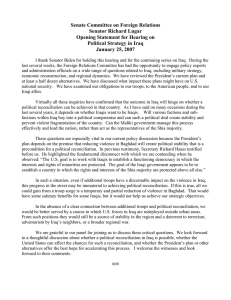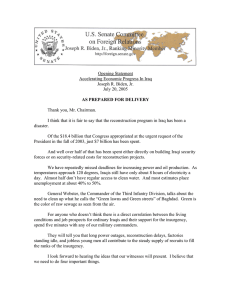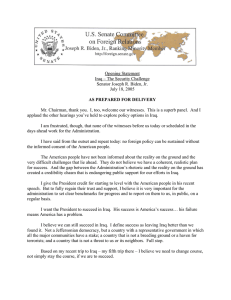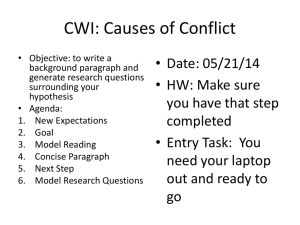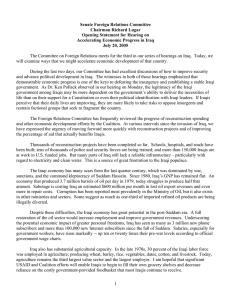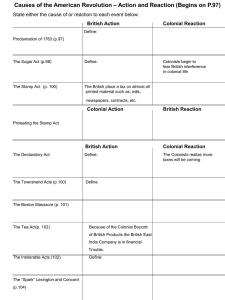Opening Statement of Chairman Duncan Hunter
advertisement
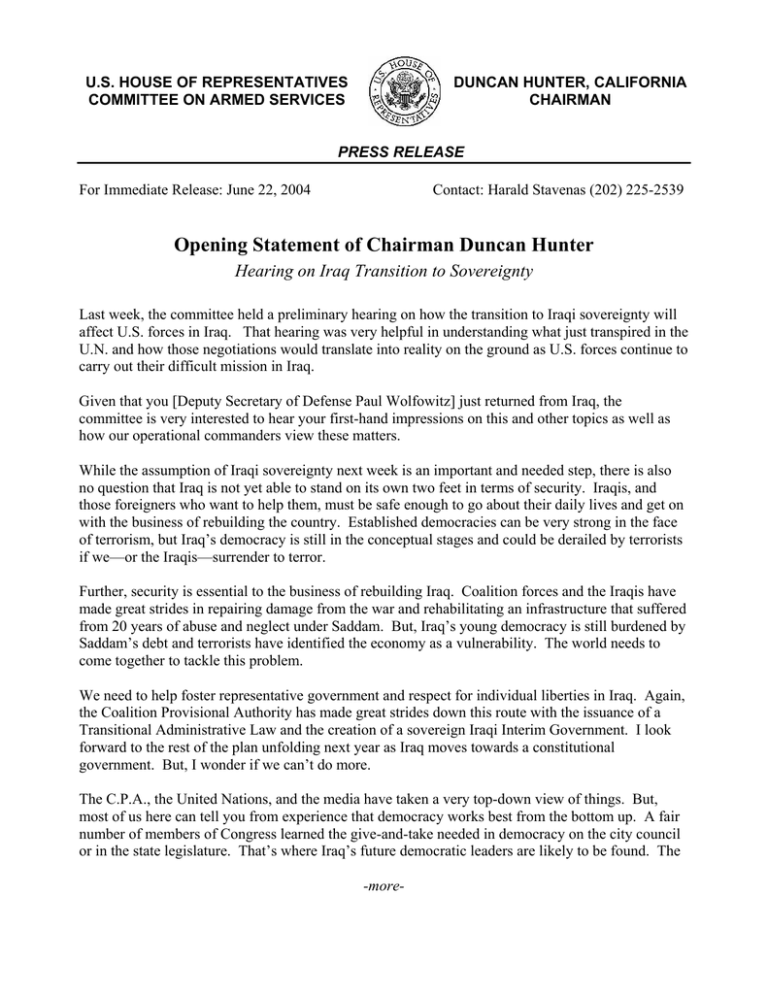
U.S. HOUSE OF REPRESENTATIVES COMMITTEE ON ARMED SERVICES DUNCAN HUNTER, CALIFORNIA CHAIRMAN PRESS RELEASE For Immediate Release: June 22, 2004 Contact: Harald Stavenas (202) 225-2539 Opening Statement of Chairman Duncan Hunter Hearing on Iraq Transition to Sovereignty Last week, the committee held a preliminary hearing on how the transition to Iraqi sovereignty will affect U.S. forces in Iraq. That hearing was very helpful in understanding what just transpired in the U.N. and how those negotiations would translate into reality on the ground as U.S. forces continue to carry out their difficult mission in Iraq. Given that you [Deputy Secretary of Defense Paul Wolfowitz] just returned from Iraq, the committee is very interested to hear your first-hand impressions on this and other topics as well as how our operational commanders view these matters. While the assumption of Iraqi sovereignty next week is an important and needed step, there is also no question that Iraq is not yet able to stand on its own two feet in terms of security. Iraqis, and those foreigners who want to help them, must be safe enough to go about their daily lives and get on with the business of rebuilding the country. Established democracies can be very strong in the face of terrorism, but Iraq’s democracy is still in the conceptual stages and could be derailed by terrorists if we—or the Iraqis—surrender to terror. Further, security is essential to the business of rebuilding Iraq. Coalition forces and the Iraqis have made great strides in repairing damage from the war and rehabilitating an infrastructure that suffered from 20 years of abuse and neglect under Saddam. But, Iraq’s young democracy is still burdened by Saddam’s debt and terrorists have identified the economy as a vulnerability. The world needs to come together to tackle this problem. We need to help foster representative government and respect for individual liberties in Iraq. Again, the Coalition Provisional Authority has made great strides down this route with the issuance of a Transitional Administrative Law and the creation of a sovereign Iraqi Interim Government. I look forward to the rest of the plan unfolding next year as Iraq moves towards a constitutional government. But, I wonder if we can’t do more. The C.P.A., the United Nations, and the media have taken a very top-down view of things. But, most of us here can tell you from experience that democracy works best from the bottom up. A fair number of members of Congress learned the give-and-take needed in democracy on the city council or in the state legislature. That’s where Iraq’s future democratic leaders are likely to be found. The -more- military did a great job in setting up local and regional governments; we need to find ways of bringing those individuals together in a constructive way. Through a league of cities, or the Iraqi equivalent of the National Governor’s Association, Iraqis may learn that their common experiences as local officials unites them more than their different religious or ethnic backgrounds divide them. That’s where our strategic interests lie; in building a better future for Iraq in partnership with the Iraqis. ###




